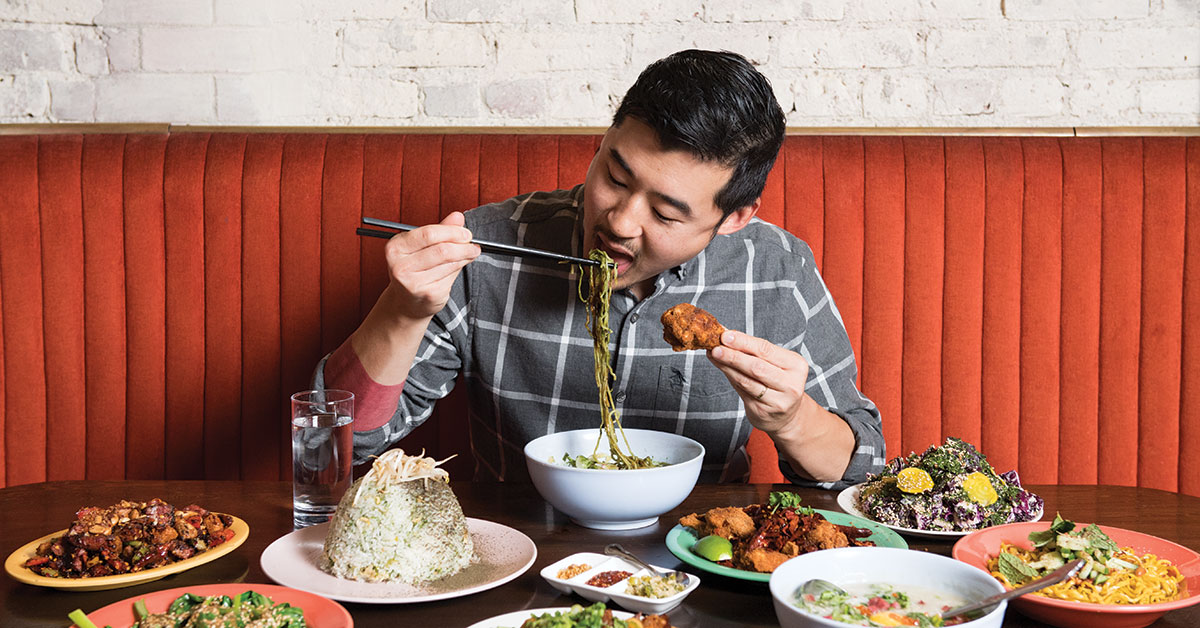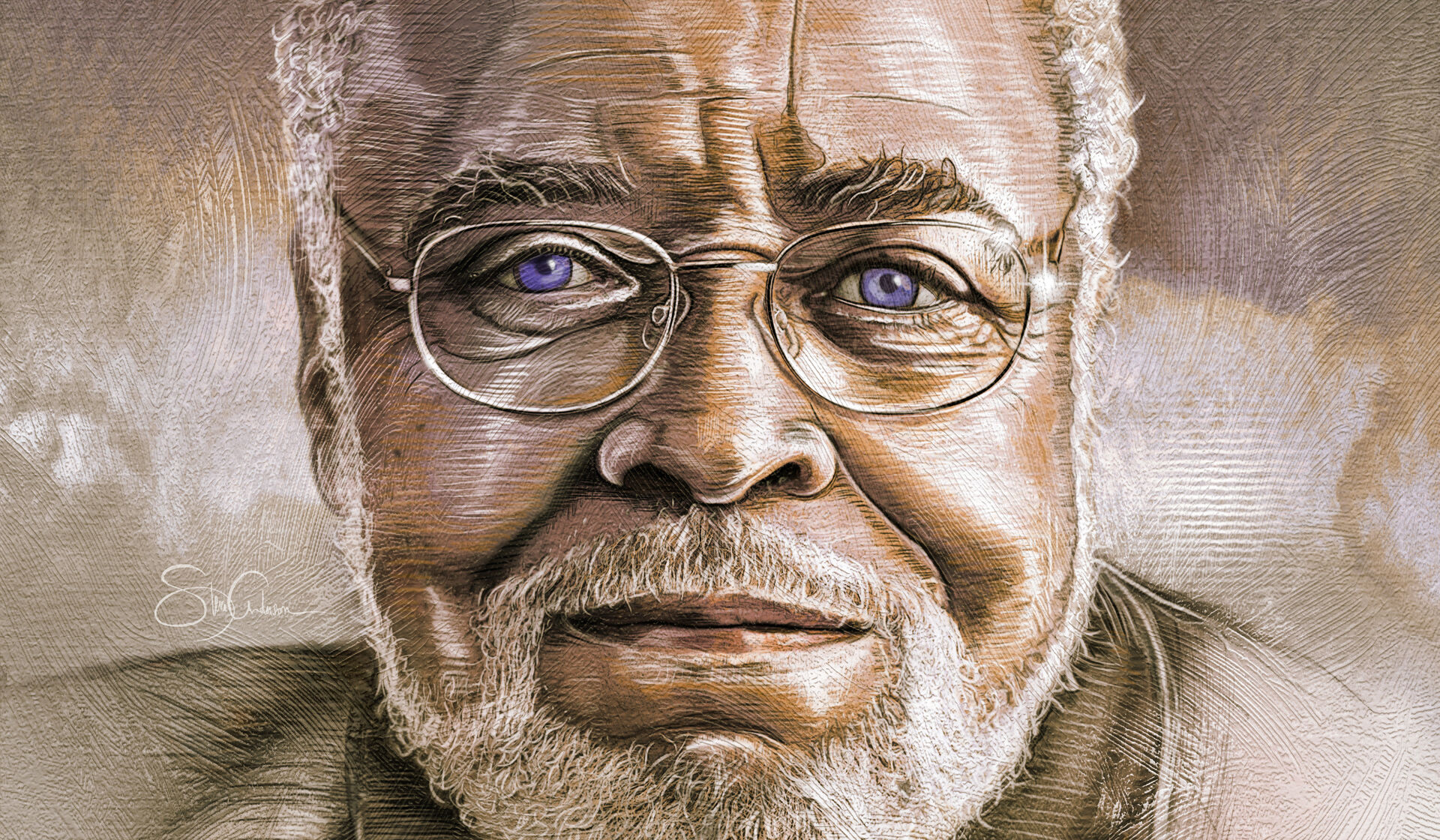As the new host of American Public Media’s “The Splendid Table,” Francis Lam, ’97, is firmly established as a central figure in America’s food-media mafia.
Lam, who recently replaced longtime host Lynne Rossetto Kasper, is a gastronomic geek who graduated first in his class at the Culinary Institute of America (CIA) after receiving his bachelor’s in creative writing and Asian studies from U-M. A one-time staff writer for the late, lamented Gourmet magazine, where he was mentored by editor Ruth Reichl, ’68, MA’70, Lam is an astute observer of what he calls “the hot-shit, cool-guy, wannabe-chef micro culture.”
In addition to his gig on the radio program, he’s been a judge on Bravo’s “Top Chef Masters” and a columnist for The New York Times Magazine, and is now an editor of cookbooks and “food narratives” for the publishing house Clarkson Potter.
“I have had this deep emotional attachment to food since my childhood,” says Lam, who grew up in New Jersey as the son of Chinese immigrants. “My family was not very communicative or demonstrative, which is pretty common culturally and generationally, but we did talk about what we were eating.” The first time his parents bragged about him to relatives was to boast: “Francis really knows how to eat.”
I always say I eat food because I love food, and I cook food because I love food, but I write about food because I love people.
Lam’s culinary career began as a U-M undergraduate when he worked in the catering department of the Michigan Union and cooked at Sweet Lorraine’s restaurant. After graduation, he hung around Ann Arbor trying to figure out what to do with the rest of his life and worked in the kitchen at Kerrytown Bistro to pay the bills. After a year, he moved to New York and got a job with Asian Americans for Equality, which focused on issues like access to health care and affordable housing.
“But there was part of my brain that missed working with food. I missed the camaraderie,” he says, while roasting vegetables in the modest kitchen of the Brooklyn apartment he shares with his wife and young daughter. He considered pursuing a graduate degree in anthropology to study foodways. “But then I decided if I was going to study food, it should be in a way that respected the work of food and that would involve my hands.”
So Lam enrolled in the CIA’s intensive two-year program. He was an insatiably curious student.
“I was sitting in the front of every class, standing right by the chef when he was doing his demo, asking every question possible, and coming home and writing these long emails to friends and family telling them, ‘This is what I’m learning, this is crazy, this life is amazing. Did you know there are only three ways to fillet a fish—and once you know them you can fillet any fish in the ocean?’”
A U-M friend shared the emails with an editor at the Financial Times who asked Lam if he’d like to write an article for the newspaper. “So I did a story for them that was basically a compilation of anecdotes from my emails, a diary of a culinary student,” he says. “It came out as the cover story of their weekend section with my picture. That was the start of my writing career. It was totally dumb luck.”
When Reichl hired him at Gourmet in 2006, Lam began reporting on the “invisible people” of the American kitchen.
“I always say I eat food because I love food, and I cook food because I love food, but I write about food because I love people,” he says. “I was naturally drawn to stories of immigrant cooks and line cooks when the rest of the magazine was covering the more vaunted chefs whose names were on the menu. Other writers were going to Bali, and the editors would suggest that I go to suburban Toronto to write about a Cantonese barbecue cook, and I was totally into that.”
I am fascinated by how food makes us real to one another.
After Gourmet folded in 2009, Lam edited a food section at Salon.com and then followed Reichl to the flash sale site Gilt.com, where they had carte blanche to create content that had nothing to do with pushing merchandise. They took advantage of this freedom to assign stories that were original and provocative, and in 2012 Gilt won four journalism awards from the International Association of Culinary Professionals.
After Gilt shuttered its food department in 2013, Lam went to work for Clarkson Potter, the publishing house, where he’s cultivated an eclectic assortment of authors. He commissioned Chrissy Teigen, the model and wife of musician John Legend, to write a cookbook called “Cravings,” which became a best-seller.
“I reached out to her because I followed her on social media, and I loved the pictures of what she made for dinner,” he says. “Chrissy’s super self-aware of who she is as a famous person and has so much fun with it because she knows her life is sort of ridiculous. She has this Chrissy realness, and she brought that to her book.”
Lam explains that contemporary cookbooks must offer more than recipes.
“What keeps the cookbook a compelling form is the ability to tell a story over the course of 200 or 300 pages,” he says, citing the first book he published, “Tacos: Recipes and Provocations” by chef Alex Stupak (and writer Jordana Rothman). In that book, Stupak discusses his appropriating and gentrifying another culture’s street food at his Manhattan restaurants. “A lot of the book is about what it means for a white American chef to cook Mexican food,” says Lam.
“The Splendid Table” allows Lam to share stories like these on the radio and podcasts.
“I am fascinated by how food makes us real to one another,” he says. His desire to be taken seriously means he won’t be rhapsodizing on air about Instagram food fads like “unicorn toast” (bread topped with a rainbow of pastel-colored cream cheeses), but he won’t make fun of them either. “I ascribe to something a friend of mine says: ‘Don’t yuck someone else’s yum.’”
Dan Shaw has been a staff editor at House & Garden, New York magazine, The New York Times, and Real Simple. He is the co-founder of the online magazine RuralIntelligence.com.





